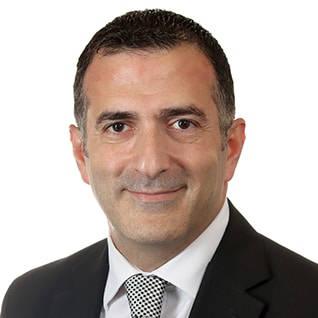From the program director
 Thank you for your interest in the Hematology and Medical Oncology Fellowship at Mayo Clinic's campus in Florida.
Thank you for your interest in the Hematology and Medical Oncology Fellowship at Mayo Clinic's campus in Florida.
Our program offers a collegial, collaborative and a patient-centered/learner-focused educational environment that supports the goals of our fellows while focusing on maintaining their wellness.
With more than 150 years of history as an institution including more than 30 years in Florida, Mayo Clinic is a first-rate choice for trainees. Mayo Clinic's campus in Florida is a unique academic medical center that excels in our three shields: patient care, research, and education, and has been recognized as one of the safest teaching hospitals in the U.S and has earned numerous high-profile accolades for quality and patient safety.
We have a diverse and accomplished group of physicians and educators, many with national and international reputations. Because Mayo Clinic draws patients from a national and international community, we see varied and fascinating pathology, while at the same time dealing regularly with common illnesses.
Mayo Clinic Hospital and the outpatient practices including Mayo Clinic Cancer Center are all part of the same not-for-profit organization. This allows our staff and fellows to work in collaboration across disciplines and have access to resources of a large and well-established research and education enterprise while working together in an intimate setting. As we thrive to advance the science of medicine, we always focus on our primary value, "The needs of the patient come first."
We are seeking bright, motivated, and hard-working physicians for our program who are eager to learn and contribute to the science, while establishing lifelong friendships and collaborations.
I welcome you to learn more about our program and to consider joining us on the journey.
Rami Manochakian, M.D.
Hematology and Medical Oncology Fellowship Director
/prod01/channel_2/media/mccms/content-assets/academics/residencies-and-fellowships/hematologyx2foncology-fellowship-florida/department-and-faculty/hematology-oncology-fellowship-florida-1024X512-divsion-w-fellows-2025.png)
 Thank you for your interest in the Hematology and Medical Oncology Fellowship at Mayo Clinic's campus in Florida.
Thank you for your interest in the Hematology and Medical Oncology Fellowship at Mayo Clinic's campus in Florida. /prod01/channel_2/media/mccms/content-assets/academics/residencies-and-fellowships/hematologyx2foncology-fellowship-florida/HemOncFellow_FL_Mangurian_720X480.jpg)